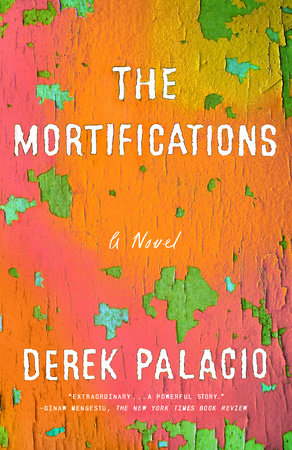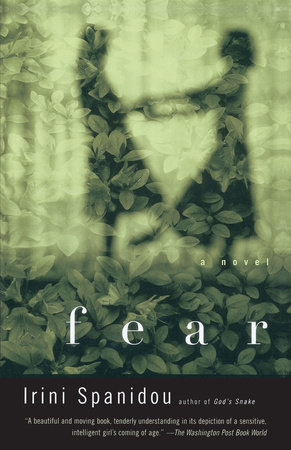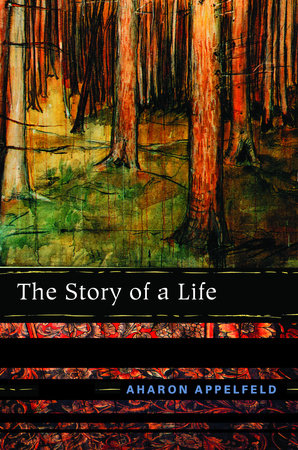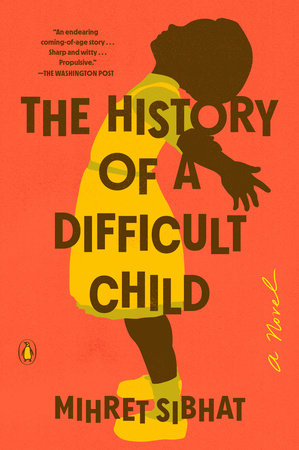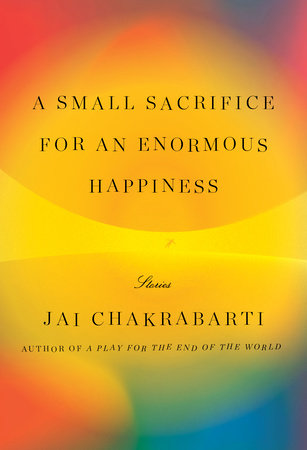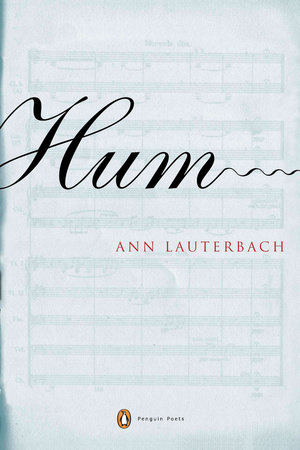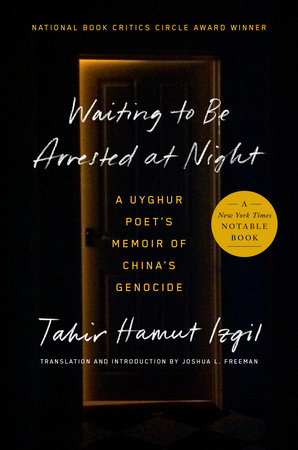Q. What was your inspiration for writing The Mortifications? Where did the idea for the story originate?
A. In my late twenties I discovered the works of Reinaldo Arenas. In his writing I found not only a language that was complex and visceral, but also a gorgeous longing that revolved around the heartbreak of losing one’s home. After reading his unforgettable memoir, Before Night Falls, I started thinking about my father’s family’s history, their departure from eastern Cuba in the 1950s, and the complicated relationship with their homeland that resulted from their emigration. I began writing stories about Cubans in Cuba, whose lives had been altered by the country’s transformation following the revolution. My fascination with my father’s experience, however—abandoning his homeland before he was old enough to know what that meant—became the foundation of what I thought would become a long story. But as I imagined a young boy’s home in the foothills of the Sierra Maestra, a tomato garden outside a country house, the dissolving memories of a patriarch left behind, a choppy boat ride from Mariel to Miami, the story grew and grew, until I realized it was a novel. Until I understood that writing The Mortifications was a way for me to explore how someone like my father—an exile, an immigrant—might reconcile the emotional and spiritual trauma of a ruptured past.
Q. Your father, Carlos Armando Palacio, was born in Cuba in 1950 but immigrated with his family to the United States in 1956. How much did you draw on your personal history in your exploration of memory and fate? Does the story of the Encarnación family recall your own?
A. Though the Encarnación clan and history is wholly different from my family’s, The Mortifications does reflect and assume some facts from our lives: the Encarnación children attend a religious school when they come to America; my father, my siblings, and I attended Catholic school all our lives. The novel’s patriarchs are agriculturalists, as was my father’s family in Cuba where they owned a sugarcane plantation. There is a garden outside the old Encarnación house in Buey Arriba, as there was behind my father’s childhood home in Puerto Padre. Ulises, the son, can barely communicate with his great-aunt Delfín, who speaks a dialect he does not know; I could not communicate with my own abuela, as I spoke only English and she spoke only Spanish. My siblings and I grew up as Cuban-Americans in New England, the region where the Encarnación family settles in the United States. Uxbal, the Encarnación father, is a rebel, and my father’s uncle, Carlos Turruelles, fought for Castro in Oriente. My father’s first train ride is the anecdote Ulises recalls in the first pages of the book, the story of his father’s first train ride.
Those personal echoes are the elements from which this novel was built, and in using them—especially my father’s memories—I hoped to illuminate and perhaps better understand his unique experience of having been born in Cuba but not fully remembering the island. What this means is that my father does not, in some sense, know what he has lost, a quality I gave to Ulises. The consequence of that unconscious displacement is a double void, a person or character wanting both a stronger sense of home as well as something more basic: unambiguous memories of a lost country. The question What do I remember? becomes What should I remember?, to which there is no answer. The fate of Soledad, Isabel, and Ulises—and I think probably the fate of many exiles—is to live always, even when settled, as a kind of migrant; to be forever shifting between a position of knowing and unknowing.
Q. The novel begins in 1980, during the mass emigration of Cubans known as the Mariel boatlift, unfurling from there into Connecticut and Cuba. What can you share about the times and places in which the story is set, and why you chose them?
A. Having grown up in New England, the region felt to me the antithesis to a Caribbean setting, and the starkness of that disparity seemed as though it would demand more of this family. Soledad and her children, suffering not only an exile from Cuba, but also an exile from their language, the larger exile community, and a tropical landscape, experience a more severe sense of loss, the separation becoming a sensory experience during their first winter, under the cold blanket of their first snow. More selfishly, New England was the place from which I knew Cuba, and my distanced perspective informed the relationship between the Encarnacións and their shape-shifting memories of the island. As I could not look to my surroundings for a better sense or understanding of my Cuban heritage, neither could Isabel or Ulises once they were in Connecticut.
Buey Arriba, a town in eastern Cuba, became the home of the Encarnación family because it resides in the foothills of the Sierra Maestra, a mountain range famous for harboring rebels. Uxbal’s storyline—his meek resistance to the revolutionary government—alludes to that history, though it also alludes to the agrarian legacy of Oriente, something my father’s family was a part of as the owner of a sugarcane plantation. One of my father’s earliest memories of Cuba is a vision of his father on horseback, el jefe preparing to tour and inspect the fields in the early morning. The Mariel boatlift, however, represents a break in the story from my father’s Cuban experience. The violence and chaos of that event—citizens abruptly leaving their homes, the state-sanctioned beatings of asylum seekers, the startling decision by Castro to open the port of Mariel for emigration—exemplify not so much a difficult departure from one’s homeland, but a rupture from one’s place of origin, the magnitude of which could dramatically reshape a person’s perspective on their place in the world. Of his experience in coming to the United States, Ulises recalls not the promise of a new country, but the sewing shears held against his neck by his mother, a reminder that such a journey demands tremendous sacrifice.
Q. The Mortifications touches on loss, but also on longing. Can you explain how it relates to the characters in your book and also to the Cuban-American experience?
A. Each character in this novel suffers a variety of exiles—the family is exiled from Cuba, the mother is exiled from her husband and her past, the daughter is exiled from her faith and her body, the son is exiled from his memories and his origins—and those separations magnify and distort as the years pass. In response to such loss, each character engages in desperate mythmaking: Soledad, the mother, seeks a future with an ideal love, a man who could, if he existed, bridge the two halves of her life, her time both in and out of Cuba. Isabel, the daughter, preserves in her mind a vision of a strong and faithful father waiting for her on the island, a dream more generous and nostalgic than the reality she finds upon her return. Ulises, the son, cannot recall his father or much of Cuba, so he must construct his own idea of Uxbal and Buey Arriba. In each instance the character must reconcile the chronological and spatial gaps themselves, and this requires a new form of a creation, a mixture of truth and speculation, an ambiguous desire.
Because of my father’s displacement, I have grown up with an ethereal concept of Cuba as well, one further distorted by American culture and American perspectives on the island. As of my writing this, I have not yet visited the island, so my vision of the country remains an offspring of my father’s memories. Consequently, my fiction investigates concepts of Cuba more so than historical realities, blending fact and figment, recollection and research, all in an effort to understand what it means to be distantly Cuban. The true product of this foggy heritage has been a fruitful, persistent, and ever-expanding fascination with the people and history of Cuba, a creative obsession that led me to write The Mortifications, my own attempt at mythmaking.
Q. The Mortifications is something of a modern Odyssey, with its main characters redefining and searching for home. Ulises populates the novel with classical figures as he studies Ancient Greek and Latin; meanwhile, Isabel’s unique relationship to Catholicism provides an almost mythological backdrop. The siblings use the classics and theology as means of coping with loss—how did you choose and develop their passions?
A. When I was in my early twenties, I lost someone very close to me. This person’s death was sudden and unexpected, and it came at a time when we were evaluating our own relationship, what its problems were and what future it might have. In the wake of that loss, I submerged myself in my first job, teaching middle school. Rather than confronting what was before me—an abrupt void, the impossibility of closure, tremendous self-doubt—I focused on lesson plans, reading quizzes, test prep, project outlines, grading, and course curriculum. All of which is to say that my first experience with exceptional loss occasioned a displaced and zealous productivity, something I consciously offered the Encarnación children. Isabel plunges deeper into the religious fervor she took from Cuba, wherein she attends to the fatally ill, educates the hands of the deaf, and eventually oversees the passage of her own mother from life into death. Not unlike Penelope—who unweaves her tapestry at night to prolong the final abandonment of Odysseus—Isabel reaffirms her promise to Uxbal through her mutable religious calling. Ulises, torn in two directions, wants desperately to translate himself into a new world and a new life without fully relinquishing his past. He not only learns English but also makes a passion of studying Latin, all the while laboring in a terrain iconic of Cuba, Willems’s tobacco rows. Ulises is both Odysseus and Telemachus, a lost migrant as well as an insecure son.
And though Isabel is the more religious of the two, each character strikes me as a kind of mystic. They are devotees of uncertain paths, neither knowing what sort of home they ultimately seek. What comes naturally to them—faith for Isabel, study for Ulises—are not just passions, then, but also the means through which they experience that mystery of longing. So when Isabel’s own voice echoes painfully in her ears, she commits herself fully to silence and working with the deaf. And when Ulises discovers Uxbal has reached out to him through a cryptic letter, he descends into the basement of the campus library to perform out loud the Classics he loves as a way to confront the sudden voice of his lost father. Their passions are not distractions from their loss, but are modes of want, paths that lead them deeper into their respective heartache.
Q. When you wrote The Mortifications, Cuba figured in your imagination from stories and pictures, though you had never traveled there. But you’ve since been to the island. What was your experience there like? How did the Cuba you saw so vividly in your mind compare to the Cuba you saw in person?
A. For a long time, I wondered whether the Cuba in my mind bore any resemblance to the living, tangible island. Thanks to the CubaOne Foundation, I made my first trip to Cuba in October of 2016, only a few weeks after the novel was released. The experience resonated on several levels: I saw not only places I had written about in stories and The Mortifications—Havana, the malecón, the Escambray Mountains—but also places from my own family history, such as sugarcane fields and parts of the rural countryside. The worry of any writer who is the product of exile is that he or she has somehow become illegitimate, that he or she cannot reach back to certain origins or origin stories. The trip, in ways I could not see at the time, was showing me two Cubas: the one I had imagined alongside the one my family had lived and breathed in. In that sense, it made a space for the two islands to commune as well as exist side by side. Undoubtedly, I was also faced with the expansiveness of Cuba, the feeling that for all my research and reading, I only understood some tiny part of the country and its people. To go to a place one has only ever read about means learning, first and foremost, how much more there is to know. I experienced joy at seeing a landscape I had imagined, but I also experienced the necessary and ultimately fruitful despair of encountering the severe limits of my knowledge. Related to that is the fact that I will never know Cuba as I do my own blood, which is a kind of unconscious but absolute possession. I will always discern that missing authority. But I am fortunate, because I am a writer, and I traffic in words and signs, and that absence will keep pushing me on the page. I will take nothing of Cuba or my experience of the island for granted, and every effort to compose something of that place will be driven by my need—the need of an author who writes in the legacy of exile—to find communion between what is there and what I imagine on the page.
Q. What would you like readers to take away from The Mortifications?
A. This novel ventures into the territory of my father’s memories, a landscape I had been, for a long time, hesitant to explore since the recollections were not my own. My connection to Cuba is one of blood and only blood—I do not speak Spanish, I have not yet visited Cuba, and I did not grow up in a Cuban community—so I have been, and continue to be, worried about the strength of my relationship to the island and its people. I often ask myself, Can I truly claim this heritage as my own? Fortunately, even amidst those doubts, something wonderful happened when I started to investigate on the page the fragmented memories of my father’s childhood: a family story emerged, one that felt urgent and alive, as if I’d slipped, finally and faithfully, into that vein of yearning specific to the Cuban experience. I hope, above all else, that readers find this novel loyal to that reality, and that they too feel the urgency and longing of a people in exile.
